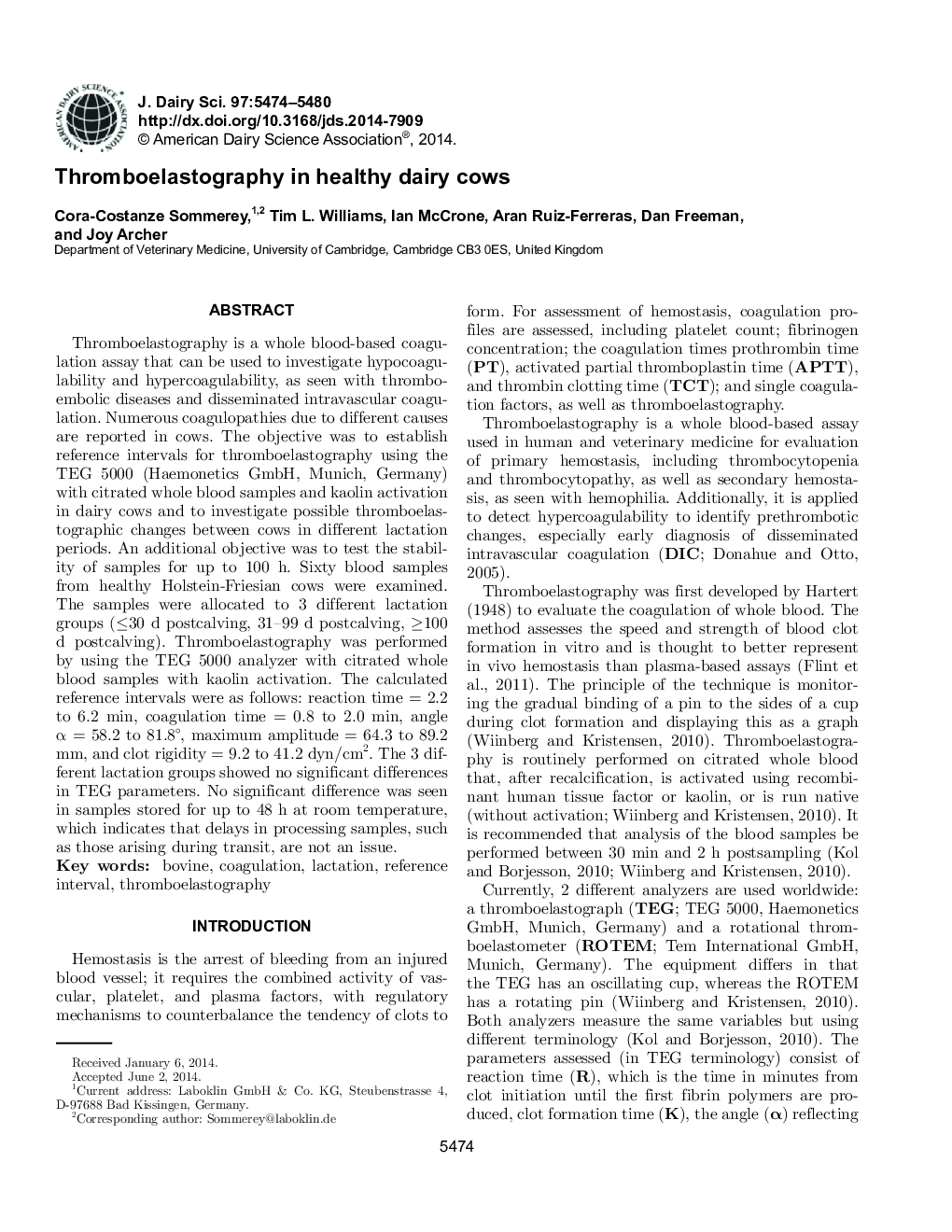| Article ID | Journal | Published Year | Pages | File Type |
|---|---|---|---|---|
| 10974110 | Journal of Dairy Science | 2014 | 7 Pages |
Abstract
Thromboelastography is a whole blood-based coagulation assay that can be used to investigate hypocoagulability and hypercoagulability, as seen with thromboembolic diseases and disseminated intravascular coagulation. Numerous coagulopathies due to different causes are reported in cows. The objective was to establish reference intervals for thromboelastography using the TEG 5000 (Haemonetics GmbH, Munich, Germany) with citrated whole blood samples and kaolin activation in dairy cows and to investigate possible thromboelastographic changes between cows in different lactation periods. An additional objective was to test the stability of samples for up to 100 h. Sixty blood samples from healthy Holstein-Friesian cows were examined. The samples were allocated to 3 different lactation groups (â¤30 d postcalving, 31-99 d postcalving, â¥100 d postcalving). Thromboelastography was performed by using the TEG 5000 analyzer with citrated whole blood samples with kaolin activation. The calculated reference intervals were as follows: reaction time = 2.2 to 6.2 min, coagulation time = 0.8 to 2.0 min, angle α = 58.2 to 81.8°, maximum amplitude = 64.3 to 89.2 mm, and clot rigidity = 9.2 to 41.2 dyn/cm2. The 3 different lactation groups showed no significant differences in TEG parameters. No significant difference was seen in samples stored for up to 48 h at room temperature, which indicates that delays in processing samples, such as those arising during transit, are not an issue.
Related Topics
Life Sciences
Agricultural and Biological Sciences
Animal Science and Zoology
Authors
Cora-Costanze Sommerey, Tim L. Williams, Ian McCrone, Aran Ruiz-Ferreras, Dan Freeman, Joy Archer,
